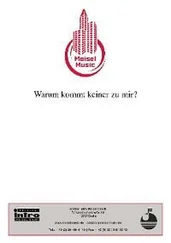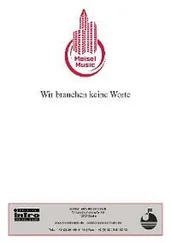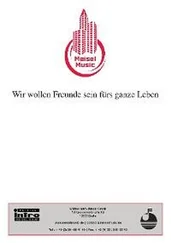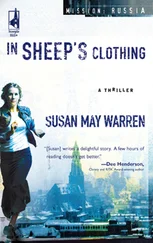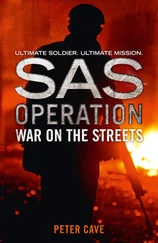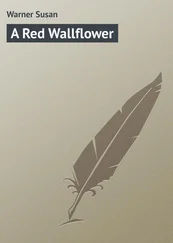Zakayev, ears ringing, staggered to his feet and saw a burning shell of a car and flames licking up the side of the warehouse and curling over the roof parapet where large pieces of burning wreckage had landed. A few feet from where Zakayev stood was a smoldering tire still mounted on an alloy wheel.
More police cars arrived, but the fire that had engulfed buildings on both sides of the alley kept the officers at bay.
Zakayev, Litvanov, and the girl dashed for the truck and piled in.
“We’ll take backstreets and work our way around the harbor,” Litvanov said. “The main streets will soon be blocked off by the police.”
A fire truck screamed by in the opposite direction, then another with police cars following.
Zakayev looked back and saw flames leaping skyward, turning the bottoms of low clouds over the harbor red.
“Anyone behind us?” Litvanov asked.
“We’re clear.”
Litvanov found the intersection he wanted and turned right to head north against the Tuloma River. Hunched over the wheel, Litvanov blew through his teeth and said, “General, I thought Serov was dead.”
The girl, seated between them, said, “He is now.”
The truck ground north, toward Olenya Bay.
Paul Friedman, the national security advisor, signaled with a subtle toss of his head and thrust of jaw, that the president of the United States was displeased.
Karl Radford entered the Oval Office and slipped into a wing chair beside the president. Friedman sat on a sofa, his knees pressed awkwardly together supporting a bundle of battered folders stamped Top Secret. The only sound in the Oval Office came from a ticking desk clock that had once belonged to Admiral Chester W. Nimitz. An inaugural gift from Radford to the president, a Nimitz admirer, it sat on a Duncan Phyfe end table next to a bust of Nimitz.
Friedman and Radford waited while the president read a document. Radford assumed it was the briefing summary he had prepared at Friedman’s direction the night before. Without looking up, the president, a handsome black man wearing a double-breasted charcoal suit, said, “Good morning, Karl.”
“Good morning, Mr. President,” said Radford.
The Nimitz clock ticked toward seven A.M.
The president finished reading. He put his elbows on the chair arms and made a steeple with his fingers. “This fellow, Scott,” he said, speaking to Radford over the steeple top. “I thought he had orders to escort Drummond’s body home, not open an independent investigation. I see here that you spoke to him.”
“Yes, sir. Last night.”
'What’s he up to?”
“Wants to prove that Drummond was murdered. He doesn’t believe the FSB report and wants to clear the man’s name.”
Friedman, heavyset with a head of thick, unruly hair that curled over his shirt collar, said, “I’m surprised you authorized his trip to Murmansk. Isn’t that risky?”
“If I had ordered Scott to stay out of Murmansk, it would only make him suspicious,” Radford said. “I felt a trip there would prove he’s on a wild-goose chase. After all, there’s nothing to see.”
The president said, “This science attaché, Dr. Thorne. What do you know about him?”
“It’s a ‘her,’ Mr. President,” Radford replied. “I was fooled too. She worked with Drummond, knows the ropes up there on the Kola Peninsula.”
“Can she be trusted?” the president asked.
“Scott vouched for her.”
Friedman said, “I read Scott’s file: It says he’s got a reputation for taking matters into his own hands. Sounds like that’s what he’s doing now.”
The president collapsed his steeple. “What’s that all about, Karl?”
“Sir, Paul’s referring to a submarine recon mission Scott undertook a year ago for the SRO into the Yellow Sea. You may remember that your predecessor ordered a special-ops team into North Korea in preparation for a preemptive strike on the Yongbyon nuclear complex. The NKs stumbled on the op before we could execute. Scott almost lost his ship trying to save a SEAL team that the NKs had trapped. He had explicit orders that if something went wrong he was to pull out and leave the team behind but didn’t.”
The president nodded. “I remember. Pretty gutsy, I’d say.”
“But a direct violation of orders. We almost lost a Los Angeles-class nuke to the NKs. It would have been a propaganda coup for them if we had and a hell of a provocation too.”
“To say nothing of the NK ship he torpedoed,” Friedman added.
The president waved that aside and moved on. “I don’t want this Drummond affair blowing up in my face while I’m in St. Petersburg. I’m facing some difficult negotiations, and the Russians have been playing hard ball on every issue we need to resolve.”
“Scott will have departed Russia before you arrive, Mr. President. I guarantee it.”
The president erected his steeple again. “See that he does, Karl,” he said in a measured tone.
“Yes, sir.”
Friedman shifted the load of folders from his lap to the sofa. “Anything new on Zakayev? I see he’s not mentioned in the briefing’s threat assessment.”
“Our J-25 com intercepts have gone deaf,” Radford said. “There’s been no communications activity between Zakayev or his people for almost ninety-six hours.”
“A worrisome thing,” Friedman observed. He glanced at Radford, perhaps hoping the SRO chief would confirm this.
Radford said, “Zakayev’s being hunted all over Russia, so he’s probably hiding somewhere. If in fact he killed Drummond, he may still be somewhere between St. Petersburg and Murmansk. I expect he’ll surface soon.”
“That’s what I’m afraid of.” Friedman unloaded the folders onto the sofa and got to his feet. “And when he does, God help us and the Russians.”
The president collapsed his new steeple and frowned. “You’re overstating it, Paul.”
“Am I?” Friedman said, then, as if suddenly remembering who he was addressing, he softened his tone. “I beg your pardon, Mr. President, but what I meant to say is that we underestimated Zakayev. The attack on the concert hall was a shock, something none of us could have ever imagined. We know Zakayev is unpredictable and, like a damned snake, can turn on us if he wants to. He’s proven it by turning on the Russians. He’s our creation and we’ve lost control of him. I still believe we made a serious mistake supporting him, using him to distract the Russians. And if they find out we did, it will destroy the summit and undermine our efforts to bring the Russians over to our side on a host of issues.”
“Your moral outrage is duly noted,” the president said. “But you’re raking over old ground. What’s done is done and we can’t change it. What we have to do is convince the Russians not to launch an all- out war in Chechnya and the Caucasus.”
“Sir, with respect,” Friedman said, “the Russians launched all-out war there ten years ago.”
“I’m talking about all-out war using nuclear weapons. They’ve threatened to go nuclear, and if they do it could ignite World War III.”
7
The Novy Polyarnyy Hotel, Murmansk
Yuri Abakov opened the window blind and looked out at the TV antennas and satellite dishes on the roof of the building next door silhouetted against a red glow in the eastern sky. Earlier a dull boom had rattled the windows.
“Is that a fire?” Alex asked.
“Looks like a big one in the harbor area,” Abakov confirmed.
Scott stood in the middle of the room surveying the bed, the greasy furniture, the soiled walls.
“I told you there would be nothing to see,” Abakov said, sounding slightly bored.
There was nothing to indicate that two men had died in the room. And no bloodstains on the floor or the bed. Scott peeled back the coverlet and sheets and discovered a cheap, thin mattress that looked new.
Читать дальше






